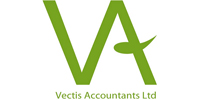New research has found that while many Brits want to start a business, nearly half say that economic instability and uncertainty ahead of the next general election is deterring them from starting up.
With no date yet set for the upcoming general election, it seems that the uncertainty caused by potential political and legislative changes is making aspiring entrepreneurs nervous. It means that many Brits with ambitions to work for themselves are being deterred from starting a business at this time, according to research by accounting software firm FreeAgent.
Its poll of working Brits has found that the majority of respondents have had thoughts of starting their own business at some point and one in five say they'd like to start a business in the next six months. However, 58% say their decision has been "significantly" or "somewhat" affected by the prospect of a general election in 2024.
Nearly half of respondents (49%) say they have been deterred from starting a business due to economic instability caused by uncertainty around the next election; prospective business owners are also worried about the ongoing cost-of-living crisis as well as a lack of government support for small businesses.
Uncertainty dampens entrepreneurial ambitions
Over a third (35%) of respondents say they have been put off from starting their own business due to uncertainty around changes in tax, with 30% worried about changes in small business funding and 28% concerned about changes in legislation and regulation with the prospect of a new government.
Furthermore, many potential business owners are anxious about the financial burdens of setting up a business, with a fifth (21%) of those surveyed concerned about start-up costs, while 18% say a lack of personal savings is a particular worry.
"Many budding entrepreneurs are clearly considering the possibility that there may be big political and economic changes on the way, particularly if there is a change in government, and are waiting to make any concrete plans to start their own businesses. However, this uncertainty is only going to continue until we have some kind of clear indication over when the next election will actually be held - and what the various political parties' priorities are for the small business sector. Although we may have to wait for the main parties to reveal their actual election manifesto pledges, I hope that they will start to give some indication over their plans for the small business sector. By having clarity over issues such as small business taxes, late payment and access to support, SMEs will be able to better plan for the future and would-be entrepreneurs will have more confidence in taking the plunge and setting up for themselves." Roan Lavery, ceo and co-founder of FreeAgent.
Brits want a better work/life balance
Despite these concerns, however, 39% of people said they still hoped to set up a business within the next 12 months. The top reasons for this are:
- Achieving a better work/life balance (46%);
- Being able to choose the work done (34%);
- Being able to follow passions (34%);
- Having a greater sense of achievement at work (33%).
Aspiring business owners are not short of confidence in their own abilities, it seems. Six in ten (62%) of those polled say that although they have moderate concerns about the potential failure of their business, they believe they can overcome these challenges.
Written by Rachel Miller.
